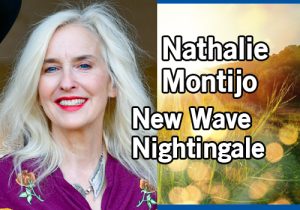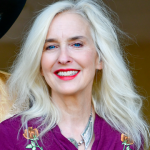Understanding your Medicare options
 CONTRA COSTA COUNTY, CA (Dec. 20, 2024) — In July 2025, Medicare will (I hope) celebrate its 60th birthday.
CONTRA COSTA COUNTY, CA (Dec. 20, 2024) — In July 2025, Medicare will (I hope) celebrate its 60th birthday.
Signed into law on July 30, 1965, by President Lyndon B. Johnson, the program was designed to provide basic healthcare for older Americans. Medicare’s original main function was to pay the cost of hospitalization for those no longer insured by an employer – Medicare Part A.
Now, Part A covers both hospitalization and skilled nursing care post hospitalization. Part B covers physicians as well as other outpatient services. Nearly all beneficiaries enrolled in Part A also enroll in Part B.
In 1997, the Medicare Plus Choice Program debuted – allowing Health Maintenance Organizations (HMOs) to participate. Medicare Part C, aka Medicare Advantage, is now responsible for nearly half of the country’s Medicare beneficiaries.
In 2003, Congress enacted the Medicare Prescription Drug, Improvement and Modernization Act (MMA) in response to the increasing cost of prescription drugs. This is Medicare Part D.
In 2022, Congress passed the Inflation Reduction Act (IRA) that requires pharmaceutical manufacturers to negotiate with Medicare on pricing for a limited number of brand-name drugs. It imposes penalties on drug companies if their prices rise faster than inflation. The IRA sets a cap on out-of-pocket (OOP) spending by the beneficiary under Part D.
All in all, Medicare continues to be a blessing for countless Americans. Moving forward, we may see a push toward Managed Medicare (Medicare Advantage) and away from traditional Fee for Service (FFS) Medicare.
Under traditional Medicare, beneficiaries pay a monthly premium for Part B and choose a Part D plan. They can see any participating provider. There is a deductible and a 20% copay once it is met. The beneficiary does not need a referral to see a specialist. It does not generally cover vision, hearing or dental. A beneficiary may enroll in supplemental insurance (Medigap). There is no out-of-pocket limit, outside of Part D.
Medicare Advantage offers cost variations. There may be a monthly premium over and above that expected for Part B. Beneficiaries usually must make copays. Generally, the beneficiary is expected to see only in-network providers and will need referrals to specialists. In most cases, the plan will provide Part D services. Plans may cover vision, hearing and possibly dental, but there may be a higher premium. There is an annual out-of-pocket limit.
Making a choice requires some consideration. I advise you to look closely at the options, beginning with a visit to www.medicare.gov. Different plans work for different individuals at different stages in life. Thankfully, beneficiaries can reconsider annually during open enrollment.
Medicare has been the cornerstone of America’s commitment to elder care since 1965. President Johnson put it best:
“None (of the elderly) ever get enough. They are entitled to it. That’s an obligation of ours. It’s just like your mother writing you and saying she wants $20, and I’d always sent mine a $100 when she did. I never did it because I thought it was going to be good for the economy of Austin. I always did it because I thought she was entitled to it. And I think that’s a much better reason and a much better cause and I think it can be defended on a better basis. … We do know that it affects the economy … it helps us in that respect. But that’s not the basis to go to the Hill, or the justification. We’ve just got to say that, by God, you can’t treat Grandma this way. She’s entitled and we promised it to her.”
Please send comments to newwavenightingale@gmail.com.

Nathalie Montijo
Nathalie Raven Archangel-Montijo holds a rather interesting array of degrees and certifications, including master’s in nursing and traditional Chinese medicine (TCM). She has post-master certification as an adult geriatric primary care nurse practitioner (AGPCNP) and a license to practice acupuncture in California (L.Ac). To round all that out, she is certified in infection prevention and control (CIC) and as an advanced certified Hospice and palliative care nurse (ACHPN).
She also performs in the outlaw country band, Nineteen Hand Horse.
